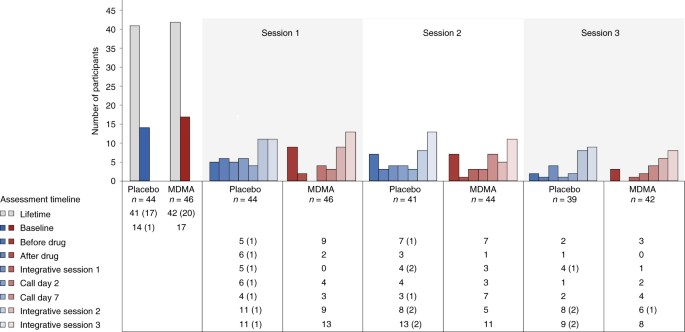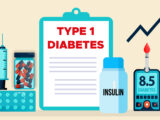
Phase 3 MDMA tests find great potential to treat severe PTSDs
May 12, 2021The multidisciplinary association for psychedelic studies (maps) has announced the results of the phase 3 trial involving MDMA-assisted therapy for people who suffer from chronic and severe PTSDs. The results were statistically significant, ‘According to the map, which reported that 67 percent of participants who underwent three of the MDMA-assisted therapy sessions saw a sufficient increase that they no longer met the requirements for the diagnosis of PTSD.
MDMA is a psychoactive compound commonly obtained as part of a drug called ecstasy. This drug remains schedule I substance in the US, which means having ‘no medical use received and high potential for harassment.’ The body of research that develops challenges this label, however, with maps that encourage research that can cause changes in how this compound is scheduled.
The newly announced results are the first of the Maps’ phase 3 trial of therapy assisted by MDMA which is specifically targeted at people who suffer from posttraumatic stress disorders. According to the organization, trials are well replicated and expanded for the results of the phase 2 trial, underlining that the therapy assisted by MDMA can proven to be a fast and effective way to treat PTSD.
The trial involved has participants took MDMA or placebo and underwent therapy for PTSD. While 32 percent of the placebo group no longer eligible for the diagnosis of PTSD after three sessions, that number jumped substantially to 67 percent among those who received MDMA instead of placebo.
The benefits are very observed among people who suffer from PTSD subtypes involving dissociation; They get many benefits of MDMA-assisted therapy compared to those who do not have dissociative subtypes. The benefits might be due, in part, to put patients to mental state where their fears decrease and sense of understanding and affection they increase.
Beyond this, the Phase 3 trial did not find large tolerance or safety problems with the participants who were given MDMA. These participants do not experience an increased risk of heart, potential abuse, or suicidal behavior and thought. Temporary side effects are observed, including decreasing appetite, feeling cold, nausea, sweating, and muscle tightness.










